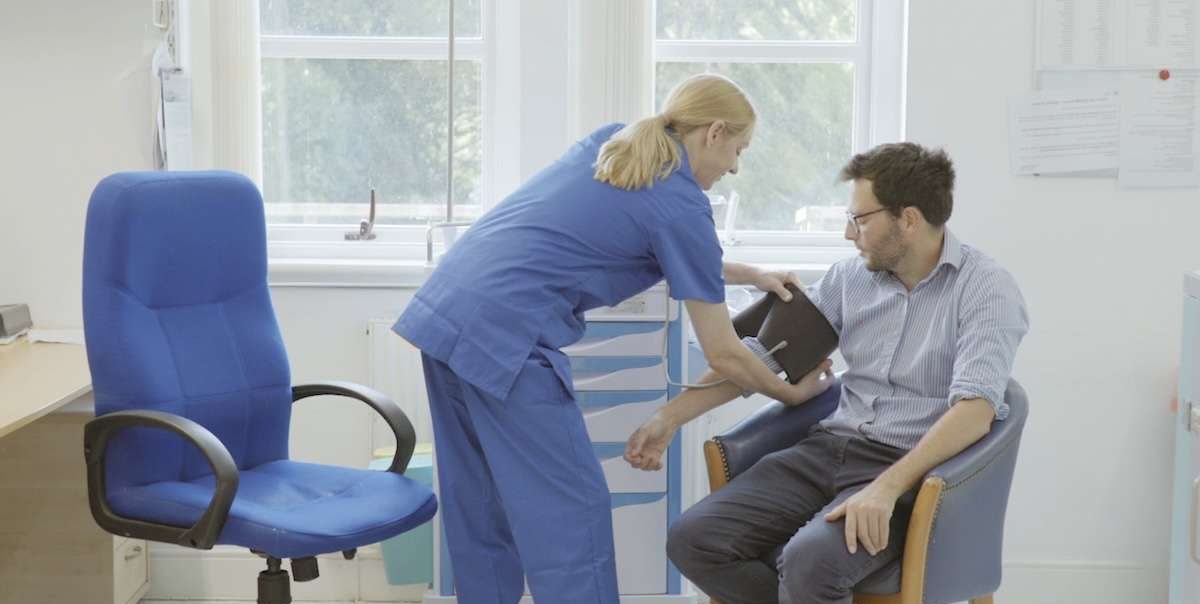
Residential Pregabalin Detox Treatment
At Castle Craig, we specialise in providing medically managed pregabalin detox in a residential setting. Our private prescription medication and substance rehab centre offers 28-day and longer-term addiction treatment programmes tailored to help you safely withdraw while addressing the underlying causes of pregabalin dependence. Set amidst the tranquil beauty of the Scottish Borders, Castle Craig provides a private and therapeutic environment, ideal for recovery from pregabalin misuse. With evidence-based treatment methods and a holistic approach, we offer more than just symptom relief – we support your well-being on every level. Our experienced multidisciplinary team works to combine expert medical care with the healing benefits of reconnecting with nature and wildlife.
This article will guide you through important information about detoxing from pregabalin, including how long it takes, what withdrawal symptoms may arise, and the stages involved. You’ll also learn about medications used for pregabalin detox and the timeline for recovery. Call us today on 01721 546 263 for further professional support, and we can answer any questions you may have about medically managed pregabalin detox. There is no shame in seeking help; it’s a courageous act that shows your commitment to yourself and those you love.
What is Pregabalin (Lyrica) Detoxification?
Pregabalin detoxification is the process of safely eliminating pregabalin, commonly known as Lyrica, from the body. This process takes place in a controlled environment where medical professionals can provide care to manage withdrawal symptoms and prevent complications, allowing for a safer transition away from the drug.
Detoxing from pregabalin, a prescription medication, can be a necessary first step in addiction treatment. It can help to alleviate physical and psychological withdrawal symptoms, reduce health risks and prepare you for the next stage of your recovery. By undergoing this process in a medically supported setting, you can start your addiction treatment journey with confidence and support.
What is a Medically Managed Pregabalin Detox?
A medically managed pregabalin detox is a structured process involving the careful removal of pregabalin from your system under the care of healthcare professionals. This can make sure that the detoxification process is conducted safely, minimising risks and providing the necessary medical treatment throughout.
This approach prioritises your safety and well-being by monitoring and managing withdrawal symptoms effectively. By providing care in a controlled, supportive environment, medically managed pregabalin detox typically builds a strong foundation for further drug or alcohol addiction treatment and long-term recovery.

Start Your Recovery at a Residential Rehab Today
Difference Between Medically Managed Pregabalin Detox and Medically Supervised Pregabalin Detox
A medically managed pregabalin detox involves comprehensive care provided by a multidisciplinary team of healthcare professionals, offering constant medical oversight and support throughout the pregabalin detox process. In contrast, a medically supervised detox typically offers less intensive oversight, providing assistance as needed but without the extensive care structure of managed detox.
Medically managed detox centres tend to offer a higher level of support, including 24/7 monitoring and tailored medical interventions. This can make sure that withdrawal symptoms are carefully managed, and any complications are addressed immediately. This level of care can create a safer environment for recovery, giving you the confidence and security to take the first step towards overcoming pregabalin dependence.
Free Gabapentinoid Medication Dependency Assessment
At Castle Craig, we offer free drug assessments for those struggling with pregabalin addiction as the first step to addiction treatment. This thorough evaluation helps us understand the challenges individuals are facing and any specific needs they may have, allowing us to provide the right level of care from the very beginning.
Following this free assessment, we develop a tailored residential treatment plan designed to support your recovery. Our aim is to provide you with the tools, therapies and medical care necessary to overcome dependence and build a healthier future. Contact us today to begin your journey with a healthier, brighter future.
Free Pregabalin Addiction Assessment
Taking the first step and asking for help can feel daunting, but our team is here to assist you.
Benefits of Inpatient Residential Pregabalin Detox and Withdrawal Treatment
The decision to undertake residential detox and pregabalin withdrawal treatment offers numerous benefits for those looking for a safe and effective path to recovery. This detailed approach addresses not only the physical aspects of pregabalin dependence treatment but also provides holistic support to help you regain control of your well-being.
Below, we explore specific benefits of inpatient rehab for pregabalin addiction and detox treatment, explaining how each can play a critical role in both immediate withdrawal management and long-term recovery success.
-
24-Hour Care for Managing GABA Analogue Withdrawal Symptoms
One of the major benefits of an inpatient programme for managing pregabalin withdrawal symptoms is the round-the-clock supervision provided by medical professionals. This can help with the withdrawal symptoms, which can range from mild to severe, and are carefully managed as they arise. Immediate medical intervention is available if complications occur, offering reassurance and safety during this critical phase.
This constant care also allows for tailored adjustments to your addiction treatment plan, ensuring it meets your evolving needs. With continuous support, you are never left to face symptoms alone, significantly reducing the discomfort and risks associated with the withdrawal process.
-
Safe, Structured Environment for Coming Off Gabapentinoid Drugs
An inpatient detox programme for pregabalin can offer a secure and structured space, free from the triggers or stressors that can hinder recovery at home. This controlled environment may create a sanctuary where you can focus entirely on your health and progress, away from distractions or pressures.
The structure of pregabalin detox programmes also supports psychological stability, as routines are established and therapeutic elements are introduced. This combination can nurture a sense of safety while receiving consistent progress in the detox process.
-
Personalised Plans for Reducing Pregabalin Dosage Gradually
Gradual reduction of pregabalin is vital for reducing withdrawal severity, and inpatient detox can make sure that this is done safely. Medical professionals design personalised plans based on your specific needs, allowing your body to adjust gradually.
Tailored strategies commonly aim to minimise discomfort and avoid shock to your system. Such customisation can allow for detox to be both safe and comfortable, accounting for individual variations in dependence severity and health conditions.
-
Support for Physical and Psychological Effects of Withdrawal
Pregabalin withdrawal presents both physical challenges, like aches or nausea and psychological effects, such as anxiety or brain fog. An inpatient programme can provide holistic care that addresses both aspects, offering comprehensive support throughout addiction detox.
Counsellors, therapists and medical staff work together to implement therapeutic strategies alongside medical interventions. This integrated approach can help both immediate symptom relief and the tools needed to manage long-term well-being.
-
Medication-Assisted Support During Pregabalin Detox Programmes
For those experiencing severe withdrawal symptoms, medication may be introduced to ease the process. This aspect of inpatient care is carefully administered, ensuring proper dosages and suitability for your condition.
By effectively relieving symptoms such as anxiety or insomnia, medication-assisted detox can enhance overall comfort. Under professional supervision, such medicines are used responsibly to aid in your recovery without generating dependency.
-
Clinical Help With Tapering Off Anticonvulsant Drugs Safely
Tapering off pregabalin requires both precision and care, as improper approaches may lead to heightened withdrawal symptoms. Under inpatient treatment, this process is carefully managed to optimise safety and minimise discomfort.
Reducing dosage gradually is paired with emotional and psychological support, which can provide a balanced approach to recovery. Individuals are supported every step of the way, allowing them to maintain progress without setbacks or undue stress.
-
Lower Risk of Relapse During Prescription Drug Detox
Relapse can often occur due to unmanaged withdrawal symptoms or lack of follow-up care. The structure of an inpatient detox programme greatly reduces these risks by providing a focused, supportive detox process.
By addressing the root causes of dependence and reinforcing coping mechanisms, this controlled treatment path strengthens long-term commitment to recovery. Constant support can make sure that any challenges are met with solutions, preventing setbacks.
-
Smooth Transition Into Rehab for Pregabalin Dependence Treatment
An inpatient detox programme not only helps manage withdrawal but can also provide seamless entry into continued rehab therapies. This can make sure that once detox is complete, the momentum of recovery isn’t broken.
The transition to rehab includes ongoing therapeutic support, group sessions and relapse prevention strategies. The steps include reinforcing progress made during detox while helping to build the foundation for recovery and a healthier future.
Private Medically Managed Pregabalin Detox Centre Near Me
Finding a private, medically managed pregabalin detox centre can be important for receiving a safe and effective recovery. Private rehab centres typically provide professional care to manage withdrawal symptoms and reduce health risks while offering a supportive environment for healing. With 24/7 medical detox supervision and holistic treatment approaches, you’ll receive the dedicated support you need to take to start the path to a life free from pregabalin addiction.

Contact Castle Craig Pregabalin Detox Centre
Castle Craig is located in the heart of the Scottish Borders at West Linton, Edinburgh, United Kingdom, EH46 7DH. Set amidst tranquil countryside, it offers a sense of peace and privacy, strengthening an ideal environment for recovery. Surrounded by nature, our residential rehab centre provides a comforting and supportive setting to begin your healing journey.
Find Us
01721 546 263
info@castlecraig.co.uk
Castle Craig,
West Linton, Edinburgh, United Kingdom, EH46 7DH
If you want to learn more about our residential treatment for pregabalin and prescription drug addiction, we encourage you to call us on 01721 546 263. Our compassionate team is here to provide the guidance and support you need to begin the process of reclaiming your life today.
-
How to Find Private Inpatient Lyrica Detoxification Centre Near You
Finding the right private inpatient Lyrica detox centre can be an important step towards recovery. With so many options available, it’s essential to focus on inpatient drug rehab centres that provide comprehensive care, medical support and a safe environment. Here are some key factors to consider when researching inpatient facilities for Lyrica detox:
- Search Online Using Specific Terms: Start by searching for phrases like “Private inpatient pregabalin detox centre near me” or “Medically managed pregabalin detox UK.” Including your location can help identify nearby options and streamline your search.
- Look for Medical Supervision and 24/7 Support: Make sure the programme includes round-the-clock medical care to manage withdrawal symptoms safely and effectively. A rehab centre with experienced professionals can ensure reliable care during your detox.
- Read Reviews and Testimonials: Look for feedback from previous patients to gain insight into the private centre’s reputation, quality of care and overall experience. Reviews can help you assess the reliability and effectiveness of their treatment.
- Consider What’s Included in the Programme: Check whether the addiction treatment programme offers aspects like holistic therapies, counselling and ongoing support. A complete package can allow for your physical, emotional and mental needs to be addressed during recovery.
- Enquire About Costs and Payment Options: It’s important to understand the costs of treatment upfront and enquire about any available payment plans. Transparent pricing can help you plan for your recovery investment.
- Check if They Accept Health Insurance: If you have health insurance, verify whether the inpatient detox facility accepts it, as this can help manage treatment costs significantly. Confirm with the provider for clarity on coverage details. By considering these factors, you can confidently choose a detox centre that aligns with your recovery needs.
Find Out About Our Drug Detox Programme
At Castle Craig, we offer free pregabalin addiction assessments as part of the admissions process. This initial evaluation helps us understand your personal challenges and determine the right course of action to set you on the path to recovery.
Following the free assessment, our residential detox programme can provide you with a tailored, medically managed pregabalin detox and recovery plan. Contact us on 01721 546 263 to take the first step towards a supported, safe recovery – you don’t have to face this alone.
Signs, Symptoms and Effects of Pregabalin Withdrawal & Detoxification
Pregabalin withdrawal and detoxification can lead to a variety of physical and psychological challenges as your body adjusts. Below we outline some common signs, symptoms and effects – though this is not an exhaustive list. Recognising such symptoms can help you understand what to expect during the pregabalin detox process and the importance of professional support.
-
Early Signs of Neuropathic Pain Treatment Withdrawal
The first signs of pregabalin withdrawal often appear within 12-24 hours after the last dose. Early symptoms may be mild but indicate that detoxification has begun.
- Mild anxiety and tension: You may feel a light sense of worry or unease as your system starts adjusting.
- Headaches and light pressure: General discomfort in your head may arise, often mirroring mild tension headaches.
- Restlessness or unease: Early withdrawal commonly brings physical or mental restlessness, making it hard to settle.
- Low mood changes: Mood swings or mild feelings of sadness can occur as the drug begins to leave your system.
- Difficulty falling asleep: Trouble falling or staying asleep is a frequent early symptom during withdrawal.
-
Moderate to Severe Symptoms of Pregabalin Withdrawal Syndrome
Symptoms can intensify within 48 hours as withdrawal progresses, particularly in cases of long-term dependence.
- Intense panic or anxiety: Stronger feelings of anxiety or even panic can occur and feel overwhelming.
- Severe and persistent insomnia: Sleeplessness may persist for nights, leaving you feeling drained and fatigued.
- Seizures or convulsive episodes: Seizures can be a serious concern during severe withdrawal and require immediate medical attention.
- Rapid or irregular heartbeat: Your heart rate may noticeably increase or feel irregular during more severe stages.
- Profuse sweating and chills: Extreme sweating or sudden cold chills may accompany more intense withdrawal phases.
-
Psychological Effects of Pregabalin Withdrawal
Psychological effects often appear alongside physical symptoms and significantly influence your withdrawal experience.
- Depressive mood and sadness: Persistent feelings of depression or emotional heaviness can develop during withdrawal.
- Brain fog or confusion: Difficulty concentrating or processing thoughts clearly is a common psychological symptom.
- Unstable emotional responses: Emotional stability may decrease, leading to irritability or sudden mood swings.
- Paranoia and intrusive thoughts: Persistent fears or unwanted thoughts can arise unexpectedly.
- Cravings for the drug: Intense urges to take pregabalin might surface, making sobriety particularly challenging.
-
Physical Signs and Symptoms During Pregabalin Detoxification
The physical toll of withdrawal becomes more apparent as your body works to eliminate the drug.
- Muscle aches and stiffness: Discomfort may develop in the muscles, often coupled with a general sense of fatigue.
- Hand or body tremors: Shaking in the hands or arms can occur as your system stabilises post-dependence.
- Dizziness with head rushes: Standing up quickly may cause dizziness or light-headedness during detox.
- Nausea and stomach upset: Digestive issues like queasiness or cramping are not uncommon.
- General fatigue and weakness: Overall tiredness might overshadow daily activities during the detox period.
-
Long-Term Effects Without Proper Pregabalin Detox Support
Without adequate support, unmanaged pregabalin withdrawal can lead to persistent challenges over time.
- Chronic anxiety and worry: Anxiety symptoms can become long-lasting without proper intervention.
- Higher risk of relapse: Insufficient support increases the risk of returning to substance misuse.
- Long-term sleep disruption: Persistent insomnia can follow an unsupported withdrawal process.
- Memory and focus issues: Cognitive challenges, such as trouble concentrating, may become a long-term issue.
- Developing other dependencies: Unmanaged withdrawal can lead to reliance on other substances, further complicating recovery.

Medications Used for Pregabalin (Lyrica) Detoxification
Medication might or might not be needed as part of pregabalin detoxification, depending on individual needs and the severity of addiction. Below, we outline some commonly used medications and their roles in easing withdrawal symptoms. Each medication can be carefully prescribed (if needed) by medical professionals to reassure your safety and effectiveness during detox.
- Diazepam or Other Benzodiazepines (for severe anxiety or seizures): Benzodiazepines like diazepam are often used to manage severe anxiety or prevent seizures, providing a calming effect during acute withdrawal phases. While diazepam can manage severe anxiety or seizures during detox, its high potential for dependence requires careful medical oversight.
- Clonidine (to reduce withdrawal-related agitation): Clonidine can be prescribed to alleviate agitation or irritability during withdrawal by stabilising the body’s stress response and promoting relaxation. Clonidine may be a valuable tool for reducing withdrawal-related agitation, but its use must be closely monitored to allow for safety and effectiveness.
- Gabapentin (sometimes used as a cross-tapering aid): Gabapentin may be introduced as a cross-tapering option, helping to ease withdrawal symptoms while reducing dependency on pregabalin gradually; however, its potential for misuse highlights the importance of professional supervision.
- Antidepressants (for low mood or depression): Short-term antidepressant therapy can help manage feelings of sadness or depression that surface during pregabalin detoxification, but it should be prescribed and monitored by a healthcare professional to avoid complications.
- Sleep Aids (short-term support for insomnia): Medications such as melatonin or mild sedatives are used temporarily to improve sleep quality and ease insomnia during withdrawal.
- Non-Opioid Pain Relievers (for muscle aches and headaches): Over-the-counter medications like paracetamol or ibuprofen can provide relief from common physical withdrawal symptoms like muscle pain or headaches, but their use should be part of a comprehensive, medically supervised detox plan.
- Beta-blockers (to help with rapid heartbeat or tremors): Beta-blockers are effective in managing physical symptoms such as a racing heart or tremors, offering relief and stabilisation; nonetheless, they must be administered under professional care to ensure proper dosage and safety.
- Anti-nausea Medications (to ease stomach upset): Medications like ondansetron help control nausea or vomiting, allowing individuals to remain comfortable while their body detoxifies. Their use should be tailored to individual needs by medical professionals.
Medical support can allow for any medication prescribed to align with personal recovery needs, creating a safer and more effective detox experience. At Castle Craig, our approach to the use of pregabalin detox medications is conducted with the highest level of responsibility so that they do not result in a new dependency. We understand that this may be a concern for some patients, and we are here to assure you that pregabalin detox medicines are prescribed only when clinically necessary and are closely managed under the care of our Consultant Psychiatrist and trained medical staff.
Our primary objective is the safe and effective easing of pregabalin withdrawal symptoms, with a commitment to your recovery and the aim of pregabalin abstinence. By using evidence-based protocols and continuous progress evaluations, we strategically utilise detox medications as a temporary aid to facilitate your transition to sobriety, always placing your enduring health, well-being and sustained pregabalin abstinence at the forefront of our approach.

Contact Castle Craig Today
Take the first step towards recovery by contacting Castle Craig. Our qualified team is here to guide you through the admissions process, answer any questions about our residential treatment programmes, and help you book a free, confidential addiction assessment tailored to your needs.
We’re committed to supporting you every step of the way. Whether you need personalised advice or more details about treatment options, our compassionate team is ready to help you find the support and care you deserve.
Does Health and Medical Insurance Cover Pregabalin Detoxification Treatment?
Yes, health and medical insurance typically cover pregabalin detoxification treatment; however, this depends on the details of your policy and your insurance provider. Coverage levels vary, so it’s important to consult with your insurer to confirm what costs may be covered during your detox and recovery process.
If your insurance policy covers medical detox treatment, Castle Craig accepts private health and medical insurance. You can contact us to discuss your pregabalin detoxification treatment needs. Our team is here to help you understand your options and access the care you need – fill out our online contact form and we will be in touch to answer your questions.
How Much Does Residential Gabapentinoid Medication Detox Cost?
The cost of residential pregabalin detox in the UK typically ranges from £1,000 to £6,000 for a 7-10 day programme. However, detox is often most effective when combined with a longer treatment plan that includes additional therapy and support services. For residential settings, daily costs range between £650 and £1,500, while weekly costs can be between £4,500 and £10,000.
Drug rehab prices can vary based on individual needs and the length of the treatment programme. Factors such as the level of care required, any additional services, and the rehab facilities provided all play a role in determining the expenses.
Pregabalin (Lyrica) Detox Timeline and How Long It Takes
Pregabalin detoxification can mark the first step in a thorough rehabilitation process. While below we discuss typical detox timelines and durations for Pregabalin withdrawal, it is important to follow healthcare experts’ recommendations. Completing a full rehab programme after detox can provide the foundation for a sustainable and long-lasting recovery.
-
Stage 1: Early Withdrawal Symptoms (6–12 Hours After Last Dose)
The initial stage of pregabalin detox begins within 6–12 hours of your last dose. During this period, mild symptoms may start to appear as the body recognises the absence of the drug. The early changes can manifest as mild anxiety, restlessness or headaches, signalling the beginning of the withdrawal process.
This stage is often the most manageable. However, the experience can feel unsettling without support. Medical professionals monitor these early symptoms closely to provide safety and comfort, offering encouragement and gentle care as your body initiates its adjustment to a drug-free state.
-
Stage 2: Peak Pregabalin Withdrawal Symptoms (24–72 Hours)
Withdrawal symptoms typically peak between 24 and 72 hours after the last dose. This stage can present greater challenges as the body and mind adjust to decreasing pregabalin levels. Physical symptoms may include headaches, nausea and muscle aches, while psychological symptoms such as heightened anxiety or irritability might intensify.
During this time, constant medical support is critical. Healthcare providers utilise medication-assisted treatment and personalised care to manage symptoms effectively, reduce discomfort and address any potential complications. This level of supervision can allow for a safer experience during the most intense withdrawal phase.
-
Stage 3: Subsiding Symptoms and Stabilisation (3–7 Days)
By the third day, withdrawal symptoms usually begin to subside, and the stabilisation phase sets in. Physical challenges such as fatigue and mild tremors may remain but become less intense. Mentally, feelings of anxiety or restlessness start to diminish along with an emotional balance.
This stage can provide a key opportunity to focus on healing and transition into additional therapies. Healthcare professionals may continue to offer guidance and lay the groundwork for ongoing recovery. Completing this important stage can prepare individuals for the holistic components of a full rehabilitation programme, ensuring that the progress made during detox can be sustained.

Related Guides on Medically Managed Residential Detox
Detox Centre | Inpatient Detox | Alcohol | Drugs | Cocaine | Heroin | Crystal Meth | Valium | Tramadol | Benzodiazepines | Xanax | Codeine | Opioid | Ecstasy | Morphine | Amphetamine | Cannabis
Inpatient Medically Managed Pregabalin Detox Treatment Admissions Process
The inpatient pregabalin detox programme at Castle Craig is tailored to suit individual needs, allowing for detailed care and effective recovery. From the initial contact to 24/7 support, every step of the process is designed to provide safety, comfort and the best possible outcome for each patient. Below is what you can expect to encounter during our compassionate admissions process:
- Initial Contact and Confidential Pregabalin Addiction Assessment: Your first step involves reaching out to Castle Craig for a private and safe discussion about your situation. During this initial contact, our team will conduct a free, confidential addiction assessment to understand your specific challenges and needs. This helps us to provide the best recommendations for your recovery.
- Medical Evaluation and Pregabalin Detox Admission Eligibility: Once you’ve completed the initial assessment, a thorough medical evaluation will determine your eligibility for our inpatient detox programme. This evaluation considers your medical history, addiction severity and any co-existing health conditions to create a personalised treatment plan tailored to you.
- Insurance Verification or Payment Planning: To make the process seamless, our team will assist with verifying your insurance coverage or exploring alternative payment options. We reinforce complete transparency regarding costs and work with you to establish a financial plan that supports your access to care without unnecessary stress.
- Admission and Onboarding into Inpatient Pregabalin Detox: On admission day, you’ll be welcomed into our peaceful and supportive rehab facility. Our friendly staff will guide you through the onboarding process, making sure you feel comfortable and informed. This step includes explaining your personalised detox schedule and introducing you to the care team who will be by your side throughout treatment.
- 24/7 Medical Monitoring and Transition Planning: During your stay, you will benefit from round-the-clock medical monitoring. This level of care helps manage withdrawal symptoms safely and can minimise complications. Towards the end of your detox programme, our team will work closely with you to plan your transition into further stages of rehab, giving you continued support on your recovery path.
Questions About Detox for Pregabalin?
Contact us to discuss your treatment needs with a licensed clinician.
Find Out About Our Residential Lyrica Detox Treatment
At Castle Craig, we understand how difficult the path to recovery can be, which is why we offer free residential addiction assessments. Our assessments can be a crucial first step, designed to better understand your unique circumstances, challenges and needs, ensuring you receive compassionate and professional care from the outset.
Following your assessment, our dedicated team will work with you to create a personalised treatment plan tailored to your recovery goals. We’ll also provide transparent and accurate pricing details for residential rehab, helping you plan your next steps with clarity and confidence. Take the first step towards recovery by reaching out to us today on 01721 546 263 – we are here to listen.
Free Pregabalin Addiction Assessment
Compassionate, expertly delivered evidence-based practices and a patient-centred approach are at the heart of our treatment model. Request a call-back from one of our professionals on any day of the week.
-
Statistics on Pregabalin (Lyrica) in the UK
- In 2018, there were 272 deaths involving pregabalin and gabapentin in the UK, a significant increase from 19 deaths in 2013.
- In 2021, there were 409 deaths involving pregabalin poisoning in England and Wales, an 18% increase compared to 2020.
- The most deprived GP practices in England prescribed 238% greater volumes of pregabalin per person compared to practices in the least deprived quintile.
- The number of patients prescribed pregabalin in England increased from 669,632 in 2018/2019 to over 820,000 in 2023/2024.